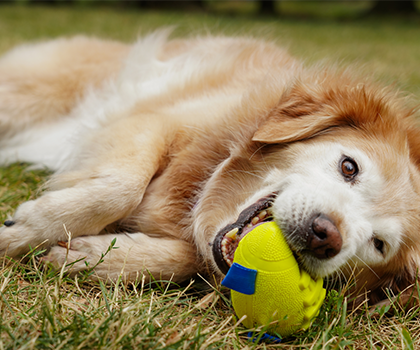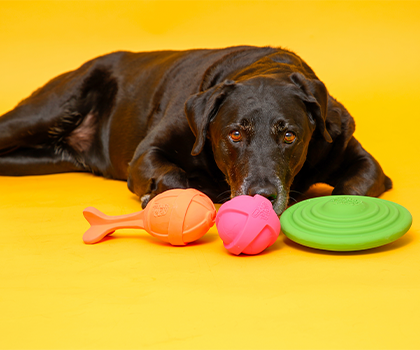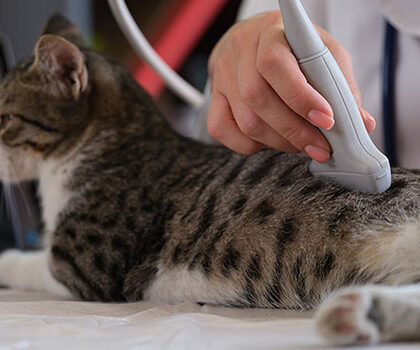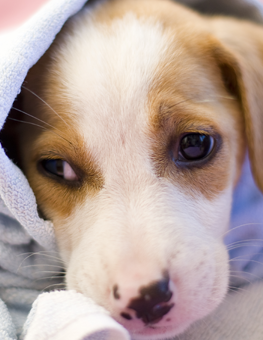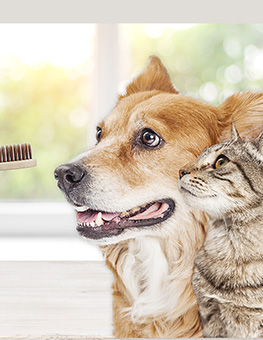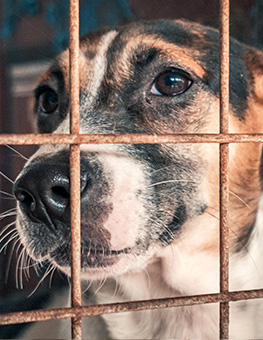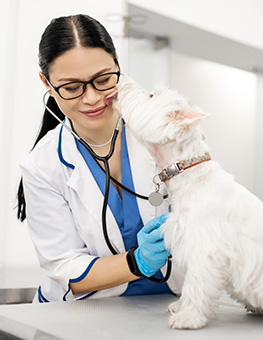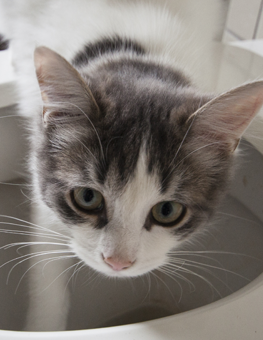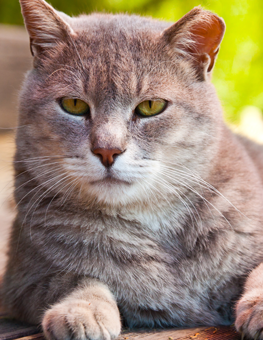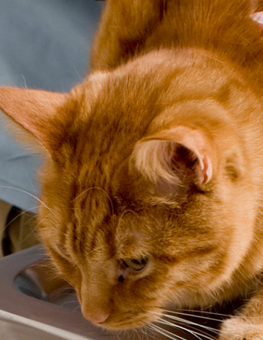A Dog's Daily Diet
It’s important to feed your dog foods from all of the essential food groups on a daily basis.
There are a few vital dietary components that your dog must consume on a daily basis. Not feeding your dog these essentials can lead to poor health and obesity.
The Four Essentials
Think of these as the four basic food groups for dogs:
- Protein. Many manufacturers use vegetable proteins in their dog food—which are hard for dogs to digest. Find a dog food that contains mostly animal protein. Dogs need a minimum of 18% protein in their diet for maintenance when they are adults and 22% for reproduction and growth. Do not overfeed your dog; too much protein can lead to hyperactivity.
- Fat. Fats keep your dog's coat healthy and provide energy. Do not buy fat-free dog foods. Adult dogs need a minimum of 5% fat in their diet.
- Vitamins. A vitamin supplement will provide those nutrients above and beyond the minimum, which are required to meet his particular needs. Consult your veterinarian to see what vitamin types and amounts your dog needs.
- Water. Your dog's water needs depend on his activity level. Also, eating a lot of dry food will make your dog thirsty. A good rule of thumb to follow: give your pet at least one quart of water for every pound of dry food.
Most commercial foods meet the minimum daily requirements for a dog's diet. When choosing a food, look for the Association of American Feed Control Officials (AAFCO) stamp of approval.
Feeding the Right Quantity
Dogs should typically have two small meals a day. A recommended serving size is provided on nearly all packaged foods. Here is the guideline that most pet products follow:
- Toy dogs 3-12 lbs: 1/2 - 1 1/4 cups
- Small dogs 13-25 lbs: 1 1/4 – 2 cups
- Medium dogs 26-50 lbs: 2 – 3 3/4 cups
- Large dogs 51-100 lbs: 3 3/4 – 6 3/4 cups
- Extra Large dogs over 100 lbs: 6 3/4 plus 1/2 cup for each 10 lbs of body weight over 100 lbs
Feeding the Right Quantity
Dry vs. Wet. While no studies have proven which type of dog food is better, veterinarians often suggest a combination of both dry and wet.
Treats. Minimize dog treats and make sure to balance your dog’s diet with the types of treats you are giving him.
Foods to avoid. Milk should never be substituted for water; too much milk can cause diarrhea. Raw meat, fish or eggs can create problems ranging from dermatitis to seizures. Always make sure your dog's food is thoroughly cooked and avoid anything with small bones, which can cause your dog to choke. Keep sweets out your dog's reach. Chocolate, in particular can be toxic.



